Search Results
Showing results 61 to 75 of 75

Exploring Black Holes and Gravity
Source Institutions
This fun and simple hands-on astronomy activity lets learners imagine what would happen if our Sun were replaced with a black hole.
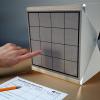
Exploring the Universe: Exoplanet Transits
Source Institutions
In "Exploring the Universe: Exoplanet Transits," participants simulate one of the methods scientists use to discover planets orbiting distant stars.
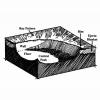
Mars Perseverance Activity: Mud Splat Craters
Source Institutions
In this activity, learners explore the physics of impact craters from their own backyard using mud. Learners are encouraged to match features of real impact craters to their models.
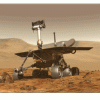
Design a Lunar Rover!
Source Institutions
In this team design challenge (page 2-10 of PDF), learners design and build a model of a Lunar Transport Rover that will carry equipment and people on the surface of the Moon.
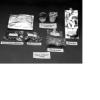
Ripening of Fruits and Vegetables
Source Institutions
In this activity, learners test the rate of ripening fruit and vegetables and use a chemical to inhibit the ripening process.
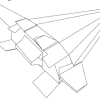
Proportionality: The X-Plane Generation
Source Institutions
In this activity, learners build a 1:140 "scale model" of NASA's X-33 Reusable Launch Vehicle (RLV) Technology Demonstrator, and investigate how the model dimensions compare to the real vehicle.
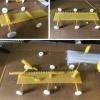
DIY Pasta Rover
Source Institutions
In this activity, learners design and build a NASA rover using raw pasta and candy with a limited imaginary budget.
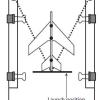
Geometry and Algebra: The Future Flight Equation
Source Institutions
In this activity, learners discover how NASA engineers develop experimental aircraft.
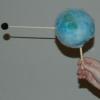
Exploring Strange New Worlds
Source Institutions
This fun and simple hands-on astronomy activity lets learners explore model planets (that they or an educator will create), using methods NASA scientists use to explore our Solar System.

Get a Leg Up
Source Institutions
In this activity, learners experiment and collect data during a simulation of the fluid shifts experienced by astronauts' bodies in microgravity.
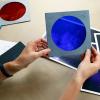
Exploring the Universe: Filtered Light
Source Institutions
"Exploring the Universe: Filtered Light" demonstrates how scientists can use telescopes and other tools to capture and filter different energies of light to study the universe.
Finding the Right Crater
Source Institutions
This quick demonstration (on page 11 of PDF) allows learners to understand why scientists think water ice could remain frozen in always-dark craters at the poles of the Moon.
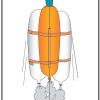
Heavy Lifting
Source Institutions
In this activity, learners work in NASA teams to build balloon-powered rockets using identical parts and compete to launch the greatest number of paper clips to "space" (the ceiling).
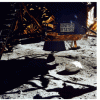
Design a Landing Pod!
Source Institutions
In this team design challenge (page 11-18 of PDF), learners design and build a Landing Pod for a model Lunar Rover (previously built in activity on page 1-10 of PDF).
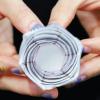
Space Origami: Make Your Own Starshade
Source Institutions
In this activity, learners cut out and fold their own collapsible origami starshade, an invention that shields a telescope's camera lens from the light of a distant star so that NASA scientists can ex
